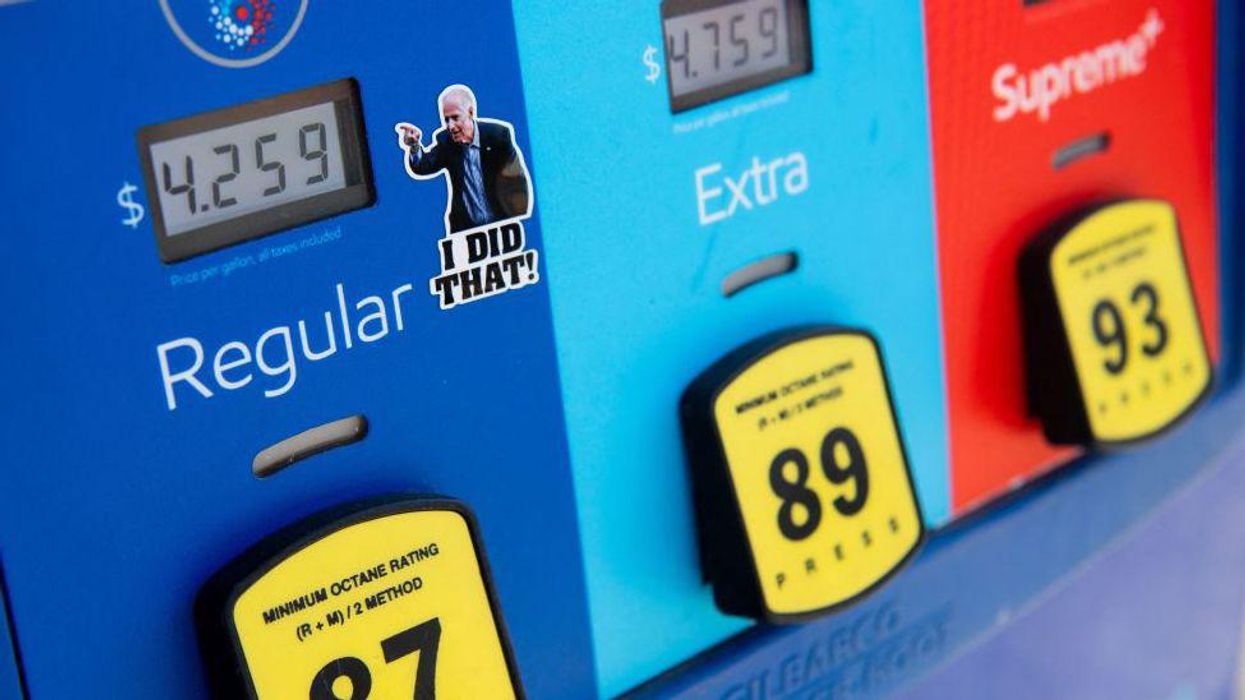
SAUL LOEB/AFP via Getty Images

President Joe Biden is asking Congress to punish oil companies for allegedly placing profits over oil production.
The allegations are the latest development in Biden's total abdication of any responsibility for the gas price crisis. Energy experts say the Biden administration's hostile policies are playing some role in the crisis, but the White House blames Russian President Vladimir Putin and oil companies.
While Russia's invasion of Ukraine undoubtedly shook the oil market, the White House has blamed oil companies for not using as many as 9,000 approved oil leases. White House press secretary Jen Psaki was making that claim before the war.
In an announcement, the White House pushed blame for the gas price crisis on oil companies, claiming they are putting profits over production.
"[T]oo many companies aren’t doing their part and are choosing to make extraordinary profits and without making additional investment to help with supply," the White House said in a statement.
To stop oil companies from their alleged profiteering, Biden wants Congress to impose fees on companies for not using approved leases.
"Today, President Biden is calling on Congress to make companies pay fees on wells from their leases that they haven’t used in years and on acres of public lands that they are hoarding without producing," the statement said.
"Companies that are producing from their leased acres and existing wells will not face higher fees," the White House continued. "But companies that continue to sit on non-producing acres will have to choose whether to start producing or pay a fee for each idled well and unused acre."
Three significant problems exist with the White House's claims.
First, while the oil industry is highly lucrative, it is also volatile. Although major oil companies measure annual revenue in the tens of billions of dollars, the same measuring standard applies to losses. In fact, the world's biggest integrated oil companies — ExxonMobil, BP, Shell, Chevron, and TotalEnergies — lost more than $70 billion in 2020. That means gains in 2021 essentially offset losses from the previous year.
Second, many oil companies, while making investments in renewable sources, are slowing investments in fossil fuels because the U.S. government is enacting policies that are increasingly hostile toward oil. Why would a company make additional investments in oil, like the White House's statement indicates the Biden administration wants, if U.S. policy makes oil production untenable?
Third, not every approved oil lease is viable. In fact, the process of finding, acquiring, and developing oil under an approved lease is a lengthy one — only if oil exists under the land for which a lease is approved. To make matters worse, leases are often hung up by litigation and bureaucratic red tape.
Anne Bradbury — CEO of the American Exploration & Production Council, a national trade organization that represents oil companies — has called the White House's accusation a "red herring."
"It's really a distraction from the fact that this administration has paused leasing on federal lands, something that we're concerned about and something that we think needs to continue right away," Bradbury told Fox Business. "The fact is that industry is producing at a higher level on existing leases on federal lands than in the last 20 years and these leases take many years to explore, to develop and produce on."